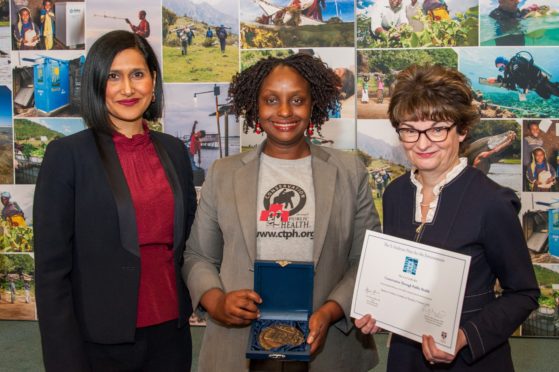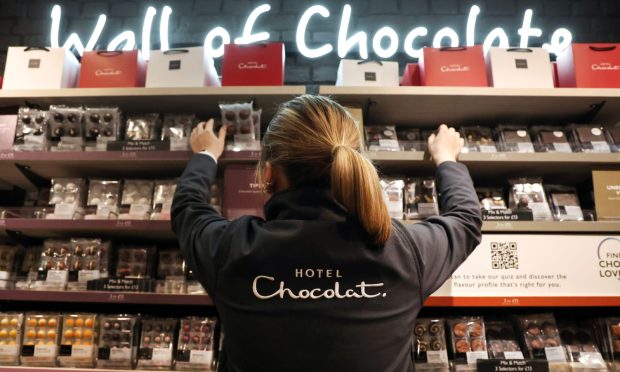A conservation project based in the Democratic Republic of Congo has won the prestigious St Andrews Prize for the Environment 2020.
Since its launch in 1998, the prize has attracted more than 5,850 entries from projects around the world and donated more than $2 million to environmental initiatives.
This year’s top selection was Conservation Through Public Health, which aims to replicate a community-based health and conservation model it has been championing for 16 years with endangered mountain gorillas in Uganda to a different sub species of gorilla in the Congo.
Work in Uganda’s Bwindi Impenetrable National Park led to a growth in the mountain gorilla population, and those behind the initiative hope there will be a similar outcome with critically endangered eastern lowland gorillas in the Congo.
Dr Gladys Kalema-Zikusoka, from Conservation Through Public Health, was presented with the winning prize of $100,000 at a ceremony in St Andrews.
“It is a great honour to be selected first as a finalist and then a winner for this prestigious prize,” she said.
“The prize will enable us to improve the health and livelihoods of communities who share a habitat with critically endangered gorillas and raise the international profile of “One Health” as a holistic approach to achieving conservation and sustainable development.”
This year’s runners-up, each receiving $25,000, were Dirty Girls of Lesvos and the SmartFish Group.
Dirty Girls is a pioneer of washing used materials in humanitarian relief efforts, collecting good quality wet and dirty clothing discarded by thousands of people fleeing war and terror arriving on the island of Lesvos and then reusing, washing and upcycling to distribute to those in need.
Meanwhile, SmartFish supports artisanal fishers’ livelihoods while trying to address the global issue of overfishing.
Professor Sally Mapstone, Principal and Vice-Chancellor of St Andrews University, said: “Conservation Through Public Health is an outstanding winner of the St Andrews Prize for the Environment.
“It is an immensely inspiring, research-informed, and intelligent initiative, which has produced evidence-backed results during its over 17 years of operation.
“This is the 22nd anniversary of a prize that has spearheaded innovation and which demonstrates how global collaboration can change our environment and our lives for the better.
“The University of St Andrews is renowned for its leadership on critical global issues and is at the forefront of innovative solutions to the global climate emergency.”










